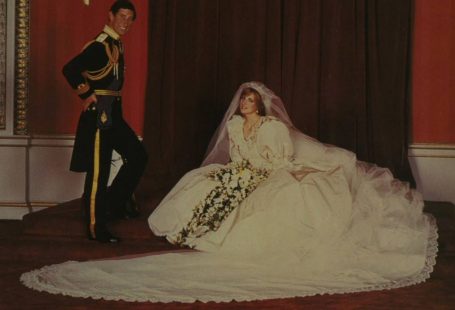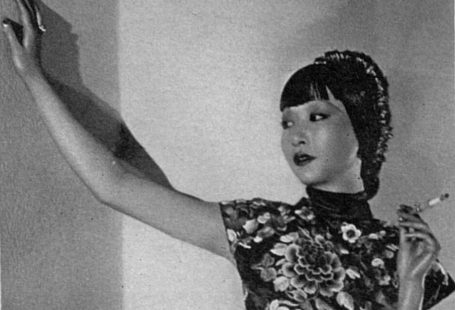We’re endlessly fascinated by the stories that people are finding in the British Newspaper Archive.
While most of the stories (so far!) that people have kindly sent in have been about family history, there are 100s of other history researchers rummaging around in the Archive.
Just recently, the History Department at Sevilla Football Club contacted the BNA to tell us about their amazing and historic discovery in the Archive.
So, if you much preferred the “working people’s ballet” back in the halcyon days when comedic dogs gambolled their way on to the pitch and folk could only gain entry to football matches if they were wearing a bunnet, then you’ll enjoy reading this excellent story.
One of the researchers in the football club’s History Department takes up the story…
************************
A treasure for football history, Sevilla Football Club’s act of constitution, has recently been discovered on the British Newspaper Archive by the club’s history department. It is on the Dundee Courier’s edition of 17 March 1890, where an article sent by the Spanish correspondent in Seville at that time relates the formation of the club. Though there were some pieces of evidence that suggested the possibility that the club had been formed in 1890, it has not been until now that we can assure that we are dealing with the oldest Spanish club specifically devoted to the practice of football.
According to the Dundee Courier correspondent’s article, which has been hidden for almost 123 years, the club duly was formed on 25 January 1890 by a group of young British residents in Seville. In order to make this constitution fully legal, they decided first to play under Association Rules, secondly to bear the word “Football” within its name and thirdly, to elect their “office bearers”.
Image 1. Edward Farquarson Johnston (pictured left) and Hugh Maccoll (pictured right)
The reason why this important report was published in the Dundee Courier must probably be found in the fact that, at that time, tons and tons of Seville oranges were loaded on steamships, travelling from Seville to Dundee in order to be treated for the manufacture of our famous marmalade.
However, this connection between Seville and Dundee could even go further if we take into account that two of the members of the Sevilla Football Club at that time, D. Thomson and Robert Thomson, could be related to DC Thomson, founders of the Dundee Courier. We now know that D. Thomson played a match on Christmas 1890, while Robert Thomson acted as referee in different matches. Perhaps, one of them was the correspondent in Spain who sent the report to the Dundee Courier.
Image 2. The historic article that contains the club’s Act of Constitution, and which states that the match in March 1890 between Sevilla and Huelva was played according to Association Rules’.
The Dundee Courier – Monday 17 March 1890
Image © THE BRITISH LIBRARY BOARD. ALL RIGHTS RESERVED.
http://www.britishnewspaperarchive.co.uk/viewer/bl/0000269/18900317/049/0004
As to the main office bearers, the club’s first president was the Scot Mr. Edward Farquharson Johnston (Elgin, 14 October 1854). He was the British vice-consul in Seville and co-proprietor of the firm MacAndrews & Co., ship-owners with commercial lines between Spain and UK, one of them being the transport of Seville oranges. Hugh Maccoll, another Scottish young man (Glasgow, 9 June 1861), a marine engineer who at that time had moved to Seville to work as the technical manager of Portilla White foundry, was their first captain.
One of Maccoll’s partners in the Portilla White foundry in Seville, Isaias White junior, was the club’s first secretary. He was the son of an English entrepreneur who founded the aforesaid company, one of the major foundries in Spain at the end of the 19th century.
In order to celebrate the foundation of the club, Isaias White sent a letter to a Recreation Club in Huelva to invite them to play a football match in Seville. That letter was published by the Spanish newspaper, now disappeared, La Provincia. Although Huelva Recreation had never played together a football match, they accepted the invitation and the match took place on 8 March 1890, being thus the first official match ever played in Spain. Sevilla Football Club won that historical match by 2 to 0, being the first goal in Spanish football history scored by the Sevilla player Ritson.
A few years later after the foundation of the club, at the turn of the century, the members of the Sevilla Football Club decided to entrust to one of the many steamships that at that time arrived to the Seville Port, red and white shirts to play football. It is thought that they could have wanted to use the same colours as Sunderland AFC, since Sevilla FC’s first captain, Hugh Maccoll, and Gilbert Reid Pollock, another founding member, resided there by that time, where they had established the company Maccoll & Pollock. However, this is not the only reminiscence they keep from their British origins, being the first coat they had very similar to those of the Scottish clans.
In 2007 Sevilla Football Club came back to the city where their first captain, Hugh Maccoll, was born to see how another captain, Javi Navarro, in a sort of tribute to the club’s origins, raised their second UEFA Cup. Next January, Sevilla Football Club, will be 123 years old, being thus the first Spanish football club ever founded.
Written by the History Department of Sevilla Football Club.





7 comments On Your BNA Stories: Sevilla Football Club – the Oldest Football Club in Spain, Founded in 1890 by British Residents
Pingback: Aniversario: Cerca de siglo y cuarto « El equipo del arte y salero ()
Sevilla FC is NOT the oldest football Club in Spain. The Sevilla FC was founded in 1908. It’s
True that in 1890 there was a football club in Sevilla, but that Club founded
in 1890 disappeared. The current Sevilla FC is not the same as the 1890 Club.
The oldest football Club in Spain is “Recreativo de Huelva” . “Recreativo Huelva” was
founded in 1889 and practiced other sports like cricket or tennis. However
Recreativo Huelva played football since 1886.
You can check this information in the following official establishment of Spanish football: Royal
Spanish Football Federation (RFEF) and “The League” (LFP)
Yes, it was fantastic news there in Spain. In fact, it was Sevilla FC’s first secretary who invited the recreation club to play their first football match.
Wow, that’s why I love BNA. I knew about this story some time ago while reading an article in the Evening Times focused on Sevilla FC’s first captain and founding member in 1890. Congratulations!!!!
Of course, William is right!!!! This is what I have found in MARCA, the best sports journal in Spain:
The Sevilla Football Club’s History Department has unearthed a treasure in Scotland, published by ‘The Dundee Courier’ on 17th March 1890, reporting how the first official football match was played on Spanish soil in Seville on 8th March 1890. It was held at the Hipódromo de la Sociedad de Carreras de Caballos (horse racing track) and was between Huelva Recreation Club and Sevilla Football Club.
“On the eighth of this month, 22 members of this city’s Recreation Club left for Seville on the mail train to take part in a ‘football’ game (the first played in Spain) which took place on the same day at 5 o’clock in the afternoon”, the ‘ Dundee Courier’ correspondent in Sevilla reports.
“The game was very pleasant with two halves of thirty five minutes, ending in a 2-0 victory for Seville. Ritson scored the first….” the anonymous journalist continues. The British Vice-Consul in the Andalusian capital acted as the referee.
The article tells the story of the founding of the Sevilla Football Club on 25th January 1890: “Six weeks ago, several young enthusiasts, residents of British origin, met in a café to consider the proposal of forming an Athletics Association (…) After much discussion and some moderate partaking of small beers, the ‘Club de Football de Sevilla’ was
duly formed. Half of us were Spanish and half British…”.
What a fascinating story! I have found further information on the Internet and Sevilla FC “was formed by the getting together of British-born workers who were temporarily working in Spain or had definitively settled here, although in this case the Spanish presence was somewhat more significant. Long before the foundation of the clubs in Rio Tinto or Huelva, in 1859 the Scottish shipping company McAndrews & Company Ltd. began to operate in Seville, where they established their main base for the whole of the country. Citrus fruits, grain and minerals were exported from Seville to the main British ports. There were some permanent workers at the river port who soon befriended the British workers of the Seville Water Works Company Ltd. established in 1882 and the Anglo-Spanish foundry Portilla, White and Co.
A friendship between Isaiah White, one of the joint owners of the foundry Portilla, White and Co. and Edward Farquharson Johnston, one of the owners of the Scottish shipping company, who was born in Elgin and had been the British vice-consul in the city since 1879, led to the creation of the Sevilla Football Club on 25th January 1890. Unlike the two previous clubs from the province of Huelva, Sevilla Football Club was primarily and solely devoted to football practice, which makes it the first football club ever founded in Spain. Johnston was not the only Scot in the club. In fact, in the first match ever played on Spanish soil between two organized clubs, Sevilla FC’s team included Thompson and Hugh MacColl, both born in Scotland, although the origin of the surnames of players like Geddes, McPherson and Logan, also suggest this nationality”
This is an amazing discovering for the history of Sevilla FC and all lovers of football history. Fifteen years of uninterrupted history of this club were silenced and now see the light. Congratulations! No true fan of football history should be upset with this news. Recreativo fans must be proud of being the oldest club in Spain since 1889 and Sevilla fans of being the second oldest club and first with exclusive dedication to football since 1890. The history of both clubs have gone by the hand.